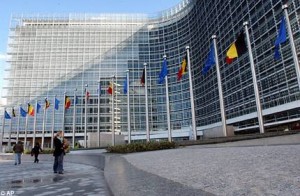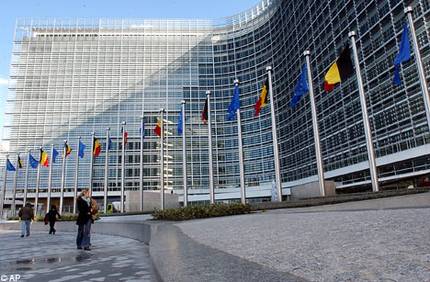Among its various mottos, the EU has a telling one: Unity In Diversity. Unfortunately, when it comes to speaking with the world outside the 27 member states, the countries of the EU tend to speak with a number of different voices rather than a single one. Even though it would be silly to say all EU countries and the political groups within the Parliament agree about everything, when it comes to the global diplomatic stage I would say we have more in common than we have differences.
We have to bear in mind, however, that EU countries are still sovereign and their leaders, particularly in the big member states, want to play leading roles on the world stage. The likes of the UK, Germany and France are all significant diplomatic and economic powers in their own right. But within these constraints we do need to better coordinate our approach.
The Lisbon Treaty has made an attempt to answer the question: Who does the US President call in Europe?
 As an MEP, one quickly sees that the EU institutions are awash with presidents, one of the consequences of using the French affectation of “president” rather than the English preference for “chairman”, “governor” or “speaker’. So, at EU level, we have a president of the European Central Bank, the Eurogroup, the Parliament and the European Council and that it to ignore the multitude of “presidents” in the European Parliament, including the leaders of the political groups and the legislative committees.
As an MEP, one quickly sees that the EU institutions are awash with presidents, one of the consequences of using the French affectation of “president” rather than the English preference for “chairman”, “governor” or “speaker’. So, at EU level, we have a president of the European Central Bank, the Eurogroup, the Parliament and the European Council and that it to ignore the multitude of “presidents” in the European Parliament, including the leaders of the political groups and the legislative committees.
Of course, it is good to see that instead of the rotating “president of the EU Council” we now have a permanent one while the grandly titled High Representative on Foreign and Security Policy clears up who Europe’s version of the US Secretary of State is. Similarly, the establishment of the European External Action Service also should save money for member states by providing a common EU Embassy in capital cities across the world.
But, despite this improved institutional arrangement, the nature of EU consensus building ensured that neither position is held by one of our continent’s premier politicians. The likes of Tony Blair, Gerhard Schröder and Joshka Fischer were overlooked when countries threatened to veto the appointment while David Miliband chose to stay in domestic politics rather than take the EU Foreign Affairs post. It was obvious that big member states clearly showed they did not want a politician that would, as it were, “stop the traffic” and, instead, opted for a person who is content to keep a not-so-high profile.
The truth is that in many policy areas the EU suffers from a fragmented approach when it comes to its external representation. For example, in global trade talks at the WTO, the EU Trade Commissioner negotiates on behalf of the EU; on monetary policy we are represented by the Commission, the ECB and the Eurogroup; EU countries hold seven seats out of the 24 in the IMF, while all 27 member states voice their opinions when it comes to global environmental policy.
The result, unsurprisingly, is a mixture of different opinions. Nobody is in charge and Europe speaks with much less impact on the world than the US or China despite the fact that Europe is one of the richest continent in the world.
I saw this confused approach when I was in some African countries, including Sudan, Tanzania and Uganda, in the last one as the EU’s Chief Election Observer. The EU ambassadors were competing for influence with the US and Chinese embassies while several member states also had their own national embassies. The result: lots of friction between the EU and national embassies and confusion over who had the most political clout.
In this month’s Strasbourg plenary session, MEPs approved a report by my Socialist and Democrat group colleague Maria Muniz de Urquiza, calling for an EU seat on the UN Security Council following a decision by the UN General Assembly to grant the EU enhanced status, with President Herman Van Rompuy and Foreign Affairs chief Baroness Catherine Ashton having speaking rights to promote EU positions to the UN General Assembly. Given that the EU has had treaty provisions for a Common Foreign Security and Defence Policy since 1993 it is logical the EU should have representation on the Security Council.
De Urquiza’s report on foreign policy ties in with a report on Global Economic Governance on which I am the S & D group shadow rapporteur in the Economic Committee. Here too, both I and the rapporteur, Swedish MEP Gunnar Hökmark, want to see an enhanced role for the EU on global economic issues. At present, we have a multitude of different organisations, such as the WTO, the World Bank, the IMF, the G7 and the G20, where individual member states are involved and the EU largely punching below its weight. Indeed, most EU countries are not part of the G7 or the G20 and would certainly benefit from having EU representation to fight for their interests.
While the reply to “Who does the US President call in Europe?” may remain a complicated one for many years to come, it is increasingly being realised that while the title of president is good for people’s egos, too many presidents, and too many different voices, weakens the international power of the EU. On the world stage, the EU deserves much better.
Prof. Scicluna is a Labour member of the European Parliament.
The Times of Malta – 25.05.2011
